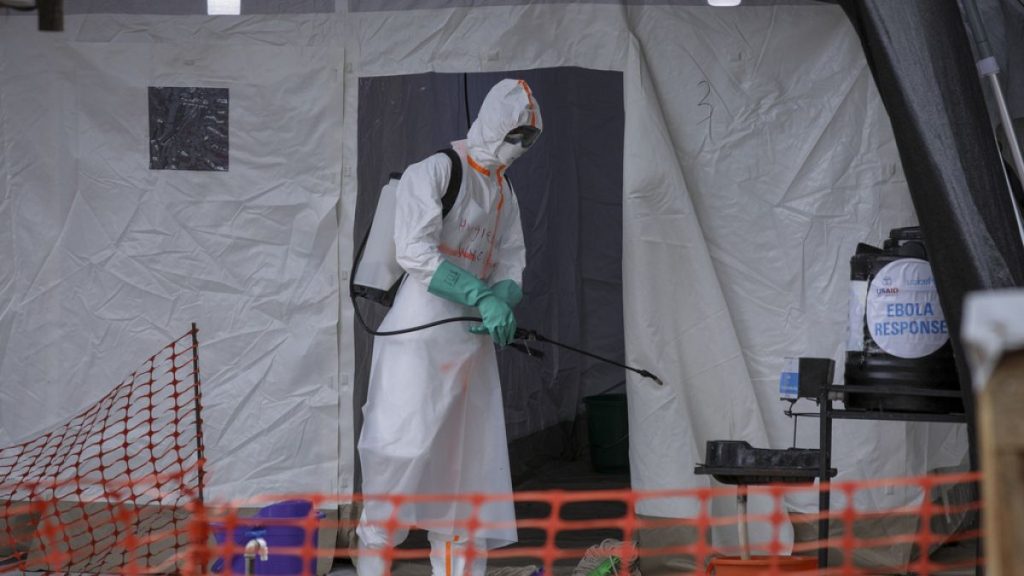Uganda Prepares for Ebola Vaccine Trial Amidst Outbreak Concerns
Uganda is gearing up to launch a clinical trial of a candidate Ebola vaccine in its capital, Kampala, as it grapples with a new outbreak of the Sudan strain of Ebola. The trial, a collaborative effort between Ugandan health authorities and international organizations like the World Health Organization (WHO), aims to evaluate the efficacy and safety of the experimental vaccine in a real-world setting. This proactive approach comes as the country seeks to prevent the outbreak from escalating into a wider public health crisis. The urgency of the situation is underscored by the recent death of a nurse at Kampala’s main referral hospital, highlighting the potential severity of the Sudan strain. While the source of the current outbreak remains under investigation, with no other confirmed cases reported as of yet, authorities are taking swift action to contain the virus’s spread.
The planned deployment involves over 2,000 doses of the candidate vaccine, and researchers are working diligently to finalize the necessary protocols and secure regulatory approvals. This process is being expedited to ensure the timely commencement of the trial. It’s important to note that the vaccine is still experimental and hasn’t yet received full licensure. The WHO is providing support to Uganda’s response efforts, including access to the trial vaccine doses. Research teams have been deployed on the ground to collaborate with surveillance teams, awaiting the final clearance for the vaccine trial to begin. The manufacturer of the candidate vaccine remains undisclosed at this time. The lack of an approved vaccine for the Sudan strain of Ebola further underscores the need for this trial.
Uganda’s previous experience with Ebola outbreaks has made it keenly aware of the importance of early intervention. The country had secured candidate vaccine doses during a previous outbreak in late 2022, but the outbreak ended before a trial could be initiated. This time, officials are determined to utilize the available resources to test the vaccine’s effectiveness in combating the Sudan strain. The success of a trial vaccine against the Zaire strain of Ebola in the Democratic Republic of Congo (DRC) demonstrates the potential of vaccines in containing Ebola outbreaks. Uganda has faced multiple Ebola outbreaks in the past, including a devastating one in 2000 that claimed hundreds of lives. The West African Ebola outbreak of 2014-2016, which resulted in over 11,000 deaths, serves as a grim reminder of the devastating impact of this disease when left unchecked.
Besides the vaccine trial, contact tracing plays a crucial role in containing the spread of Ebola. Health officials have identified at least 44 contacts of the deceased nurse, including 30 healthcare workers and patients who may have been exposed to the virus. These individuals are being closely monitored for any signs of infection and are likely to be offered the trial vaccine as part of the study protocol. The rapid identification and monitoring of contacts are essential to prevent further transmission of the virus within the community.
The current Ebola outbreak in Uganda is part of a broader pattern of viral hemorrhagic fever outbreaks in East Africa. Tanzania recently declared an outbreak of Marburg virus disease, a related hemorrhagic fever, while Rwanda successfully contained a Marburg outbreak in December 2023. These outbreaks underscore the vulnerability of the region to such infectious diseases and the importance of robust surveillance and response systems. The situation in Kampala is particularly concerning due to the city’s large and mobile population of around 4 million, which could facilitate the rapid spread of the virus if control measures are not implemented effectively.
Ebola, a viral hemorrhagic fever, is transmitted through direct contact with bodily fluids of infected individuals or contaminated materials. Symptoms of the disease include fever, vomiting, diarrhea, muscle pain, and sometimes internal and external bleeding. The early symptoms of Ebola can often mimic other common illnesses, making diagnosis challenging in the initial stages. However, as the disease progresses, the symptoms become more severe and distinctive. The high mortality rate associated with Ebola outbreaks makes prompt diagnosis and treatment paramount. The experimental vaccine being tested in Uganda holds the promise of providing much-needed protection against the Sudan strain and potentially changing the course of the current outbreak. The outcome of the trial will be closely watched by health experts worldwide as it could have significant implications for the development of effective Ebola vaccines and outbreak control strategies.














